South’s Culture Week sparks discourse, FOIA request
December 21, 2019
Late last week, a group of Grosse Pointe community members requested information and documents regarding South’s recent Culture Week through the Freedom of Information Act (FOIA).
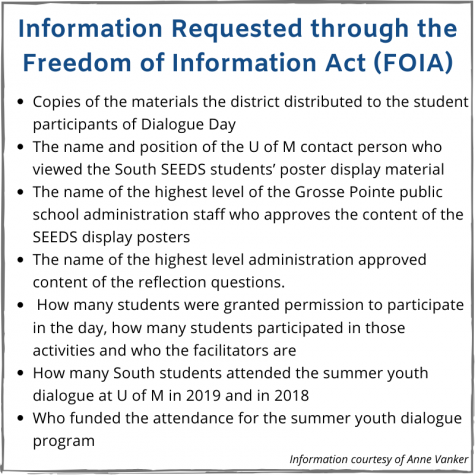
The Culture Week was put on by one of South’s organizations, Students Empowering Education for a Diverse Society (SEEDS). This was their first year planning the event, which included optional activities such as a guest speaker, a Dialogue Day and a viewing of the movie The Hate U Give.
Anne Vanker, one of the parents involved in the FOIA request, said this information was requested after she had posted to Facebook sharing her concerns with the Culture Week, specifically, a historical exhibit in Cleminson Hall about privilege.
This post garnered many responses, in support and in opposition to Vanker’s opinions, but she said she doesn’t regret posting it.
“I will never regret it,” Vanker said. “How could I regret fighting for what’s right? I’m fighting for the involuntary minors stuck over at South under this. So if not me, who? And if not now, when?”
Vanker said she mainly learned about Culture Week’s activities from her tenth grade son whose American Literature class went down to Cleminson to view the historical display and fill out the reflection sheets, which Vanker said he wasn’t comfortable with.
“He showed me the reflection sheet but I’d already gotten the reflection sheet from a couple of concerned parents,” Vanker said. “So then I looked into it…and this is outside of the curriculum. It’s a federally-funded school. Student clubs, through the Equal Access Act… don’t get to start instructing.”
Vanker said her son sent her photos of the Cleminson Hall posters. She said these photos, along with her son’s concerns, caused her to go onto Facebook.
“I posted (to Facebook) because I’m a taxpayer, and as a federally funded school, they (South) have no business letting a student club indoctrinate our kids,” Vanker said.
Social studies teacher Kendra Caralis said she took her two Sociology classes to see the Cleminson display because it tied in well with their curriculum; she also discussed it with her students afterward.
“We used the reflection sheets and it gave the students a chance to look over some facts and gave us more to talk about… things that they weren’t aware of,” Caralis said. “It’s really important when we teach social studies that we’re looking at our own environment.”
Katie Cherven ’20, one of the SEEDS facilitators, said when organizing the event they thought the reflection sheets necessary in order to have an impact on the student body.
“It’s really easy for a student to see a bunch of text and read it or not read it, and then just go about their day,” Cherven said. “But if you have to reflect on it and you can apply that information to your life and take it with you outside of the classroom, then it’s kind of useful.”
Caralis who talked with her students after the activity said according to her students, none of them felt uncomfortable or forced into the activities. In fact, she said the students thought of it more as a good experience.
“I said, did you feel upset by it? Did you feel that I was forcing this on you in any way?” Caralis said. “It was a resounding no. As one student pointed out, nobody forced them to read the boards or fill out the packet. The important thing is that students know if they’re ever uncomfortable doing something, they don’t have to do it.”
Cherven said their goal with the Cleminson display was to gather credible information that students aren’t normally exposed to in the classroom.
“We wanted to present it in an easy to read and applicable way so that they (students) could take it with them after they left the classroom,” Cherven said. “Reflect on it and leave school at the end of the day with something new.”
Cherven added all of the information on the boards were sourced and was reviewed not only by their advisors but by the University of Michigan contacts from a summer youth dialogue program, who gave them feedback.
“On our last board and the presentation, the town board, we had all of our sources listed,” Cherven said.
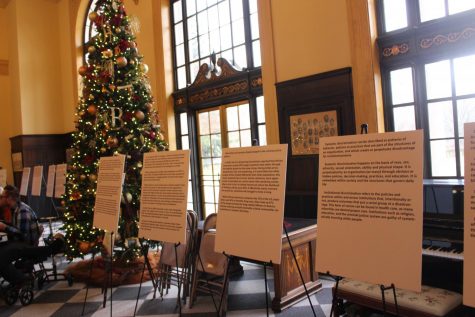
Vanker said she and a few other community members met with the SEEDS advisor Nicholas Bernbeck about their concerns.
“So, we met with (Bernbeck) and we basically just said how destructive and how divisive we believed this (SEEDS activities) are,” Vanker said. “If you induce learning and you censor voices, this sort of stuff, you divide the school. You create division where there isn’t any,”
Bernbeck said it was one of the community members in this group he met with who actually input the FOIA request. He said his meeting with Vanker and these other parents occurred before the request was sent out.
“The meeting was parents wanted to express some thoughts and concerns,” Bernbeck said. “And as an advisor, leader of a club if a parent or parents of students here wanted to talk to me, I will keep my door open and listen to what they have to say.”
Vanker said her intention with the information from the FOIA request, once they receive it, would be to post whatever they find out online.
“I probably will post it (the information) and try to find an attorney,” Vanker said. “I’m going to continue to inform myself and inform the taxpayers of what’s going on. And keep trying to enlighten the community on what’s going on in our schools with our school district.”
Cherven said regarding this FOIA request, SEEDS will provide the information willingly because the club doesn’t have anything to hide.
“At this moment in time, we are just trying to move forward with everything else that we have planned for the year,” Cherven said. “If we are requested to do something or provide something and it’s aboveboard, and they’re following the rules, then we have no reason not to do it. I think we’re happy to be pretty transparent about everything.”
Principal Moussa Hamka said despite this discourse, South is committed to moving forward in supporting SEEDS.
“The parent who reached out to me believes the SEEDS efforts to create a welcoming and inclusive school community are political and divisive,” Hamka said. “We believe they are a core value of our democracy.”
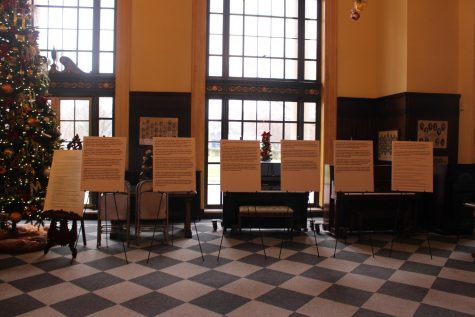
Hamka said whenever a parent comes to him with a complaint, he tries to stand in their shoes and better understand what their concerns are. However he said he had trouble seeing any merit in these parents’ concerns.
“These (SEEDS) activities for the most part were all voluntary and students filled out permission slips (for the Dialogue Day),” Hamka said. “With the exception of the poster boards that were in Cleminson Hall, select teachers did bring their classes down if it tied to the curriculum. So I don’t agree with the parental objections to these activities.”
Cherven said she thinks the Facebook post and FOIA requests brought on a lot of unnecessary stress for the SEEDS students but can also see its benefits.
“We expected backlash and I always think it’s good to receive criticism,” Cherven said. “I just wish that the criticism in the Facebook post specifically was constructive because it felt a lot more destructive.”
Caralis said she hopes SEEDS knows they are supported and that they continue to keep trying to bring awareness to the school.
“I’m a white female, I haven’t been oppressed too much,” Caralis said. “But I know that others have and I think it’s important that we learn empathy, and that we learn how to put ourselves in their shoes.”
Editors Note: According to Vanker, the community member who sent in the FOIA request was Kelly Boll. Boll refused comment on the record with The Tower.


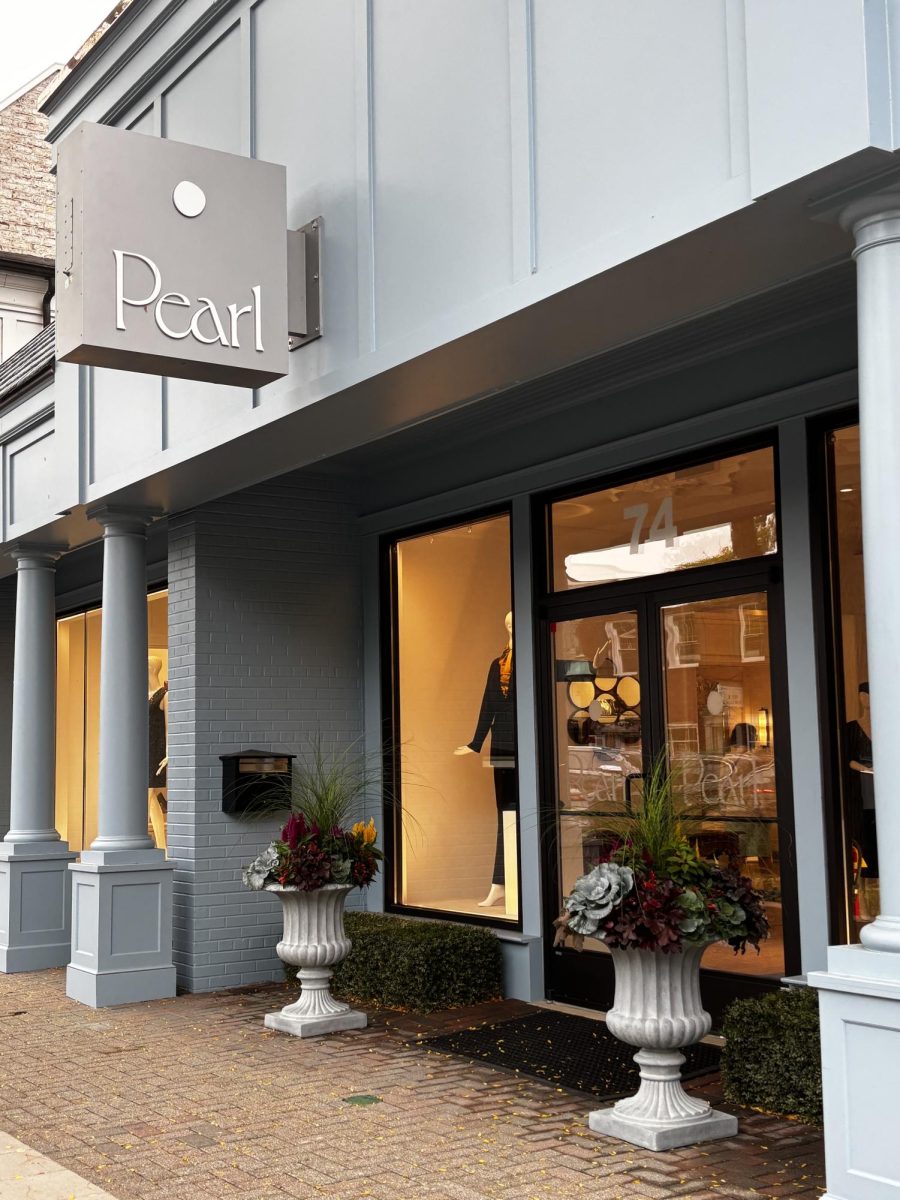
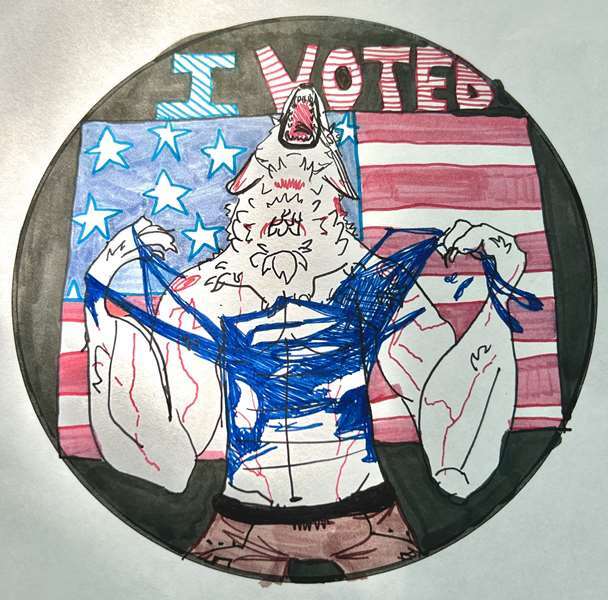

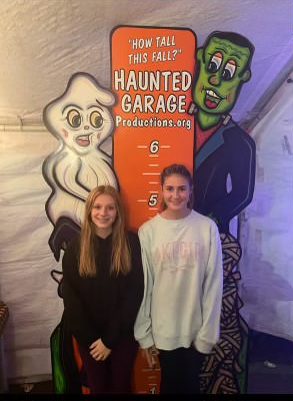


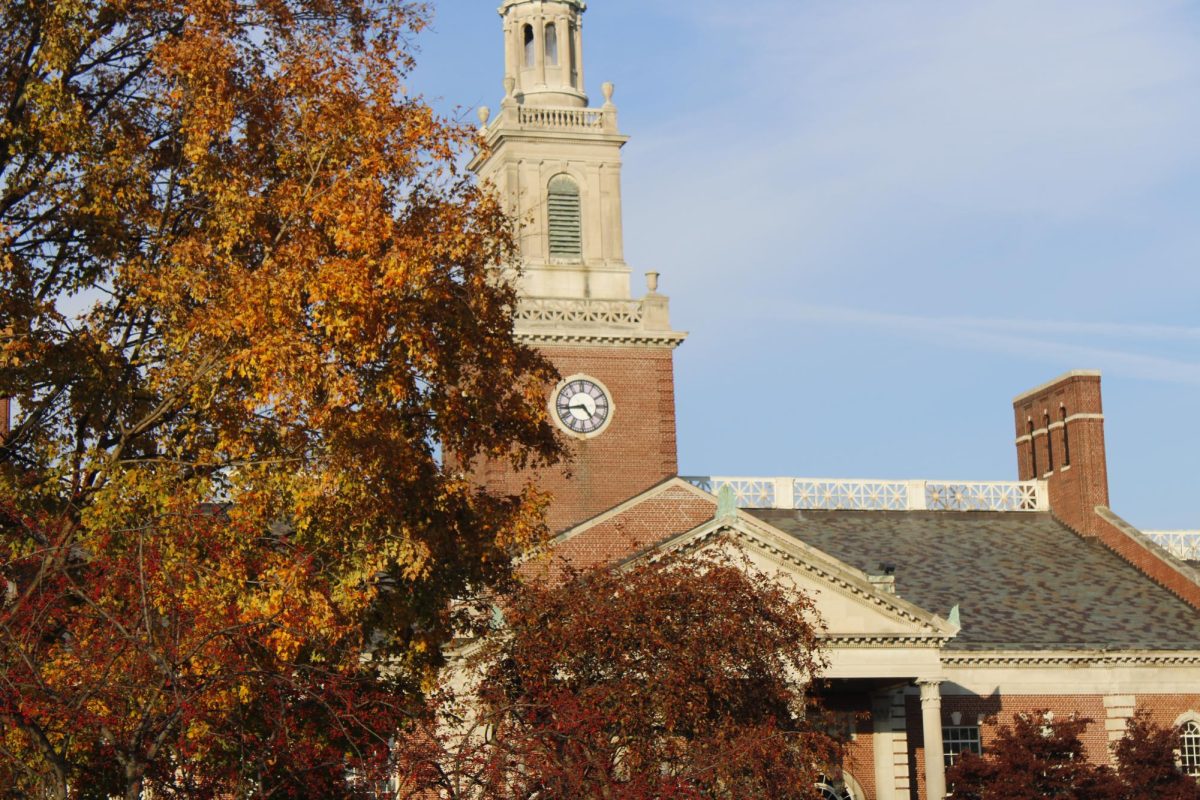



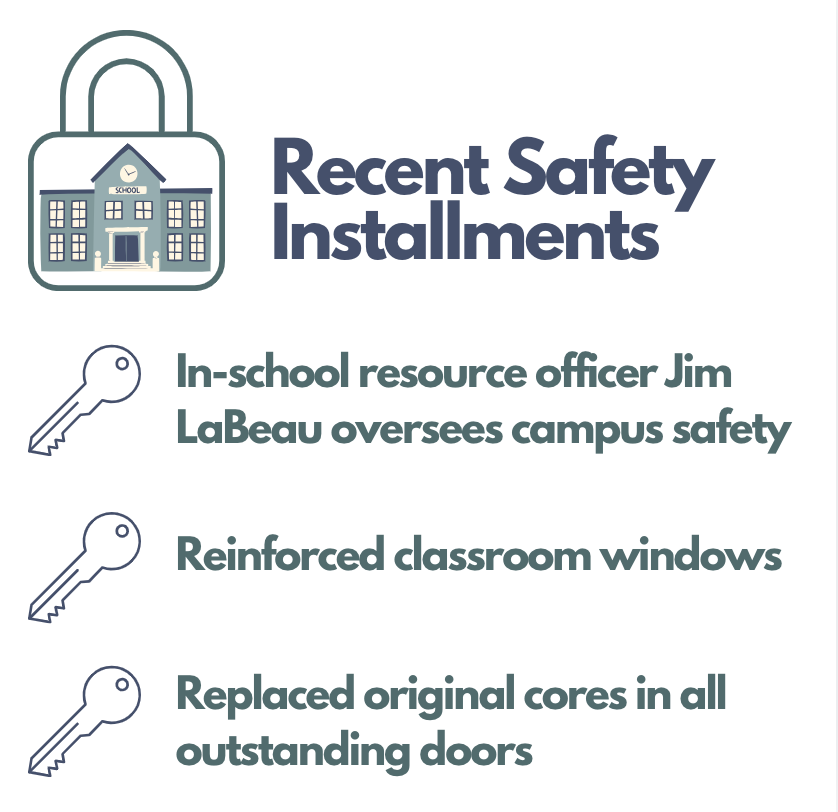

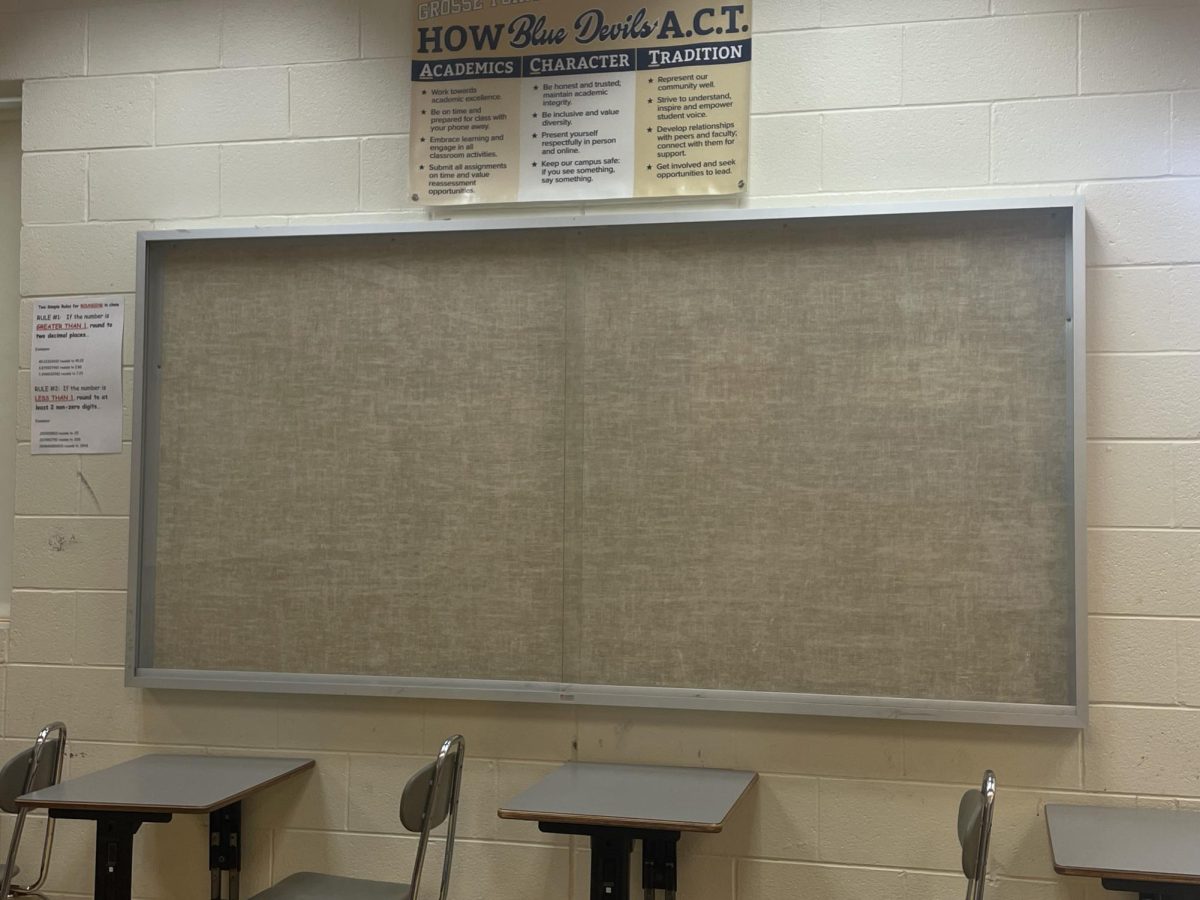
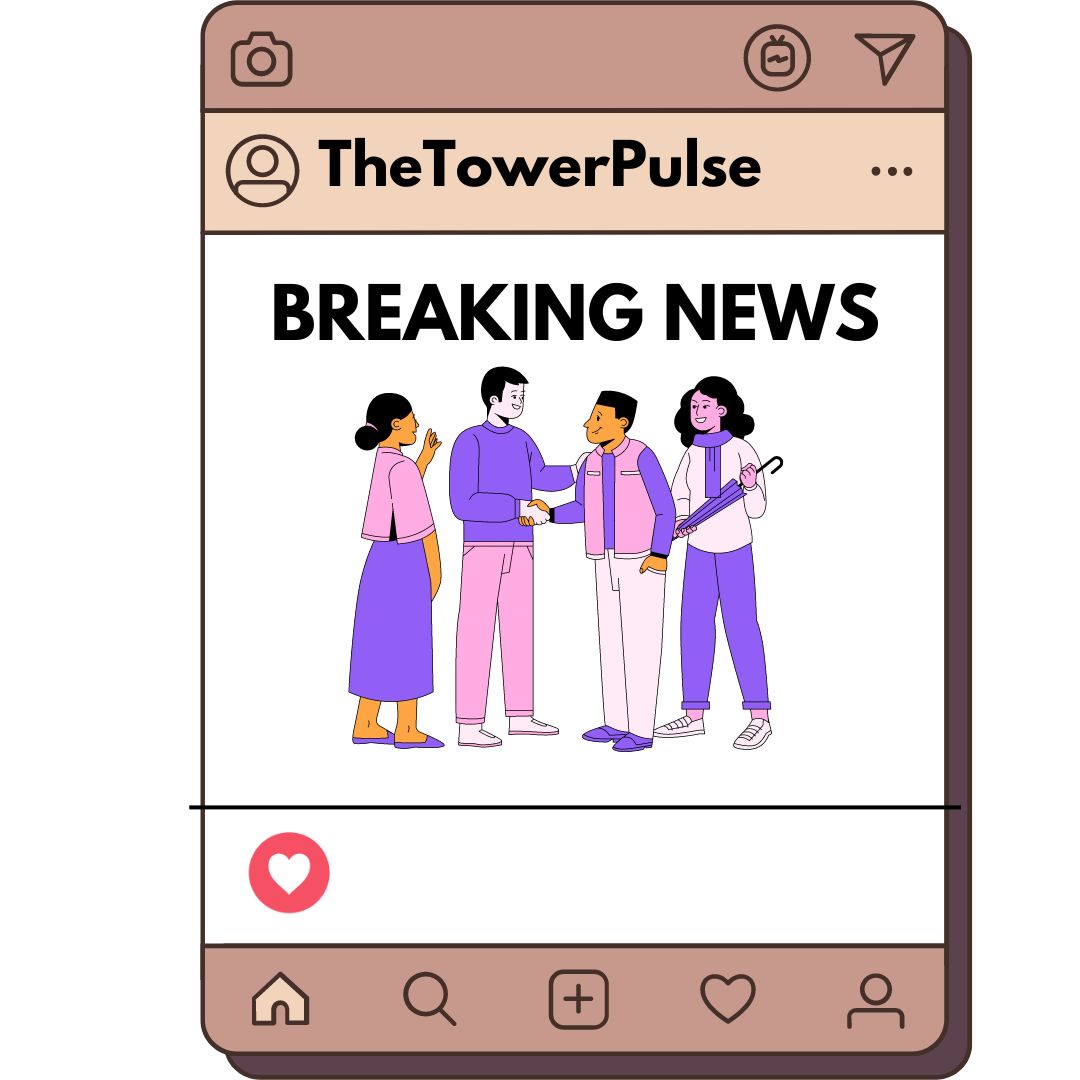










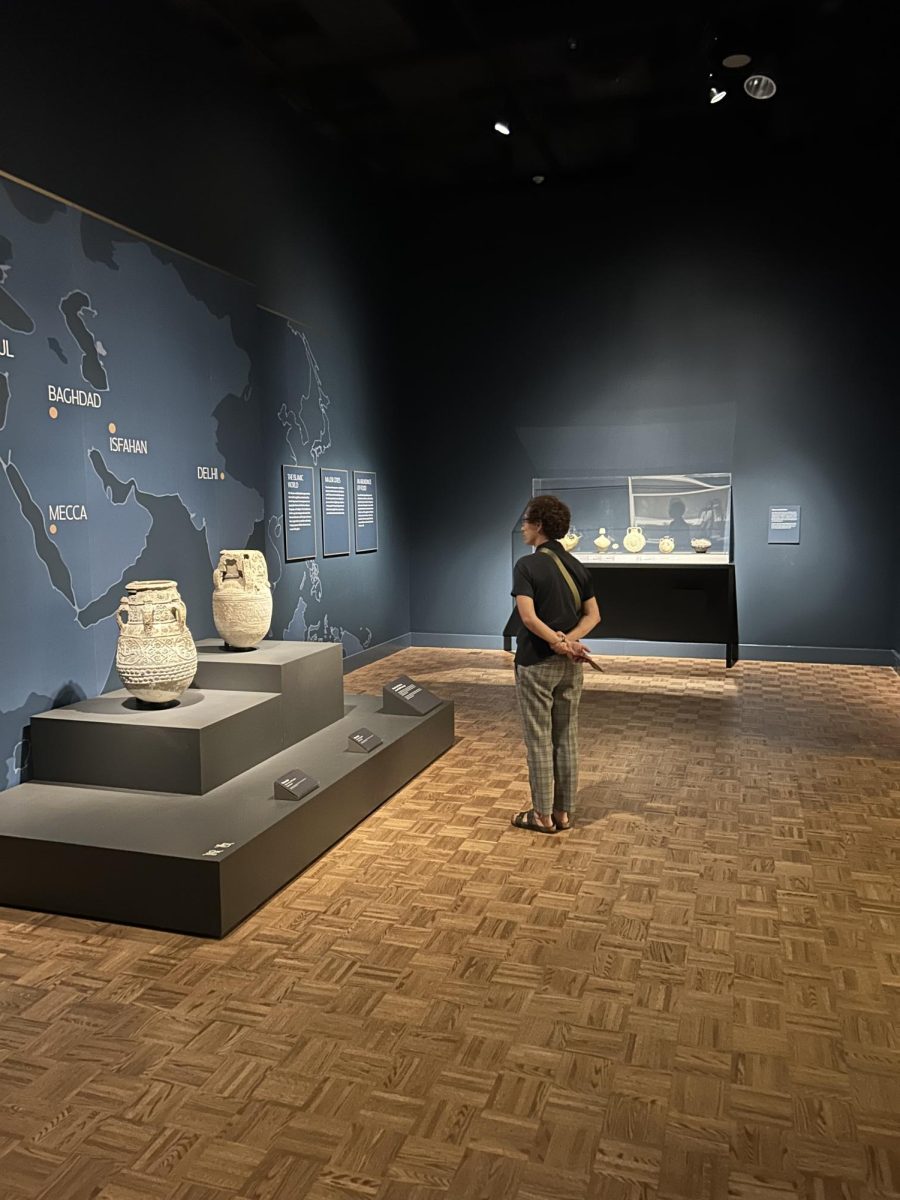
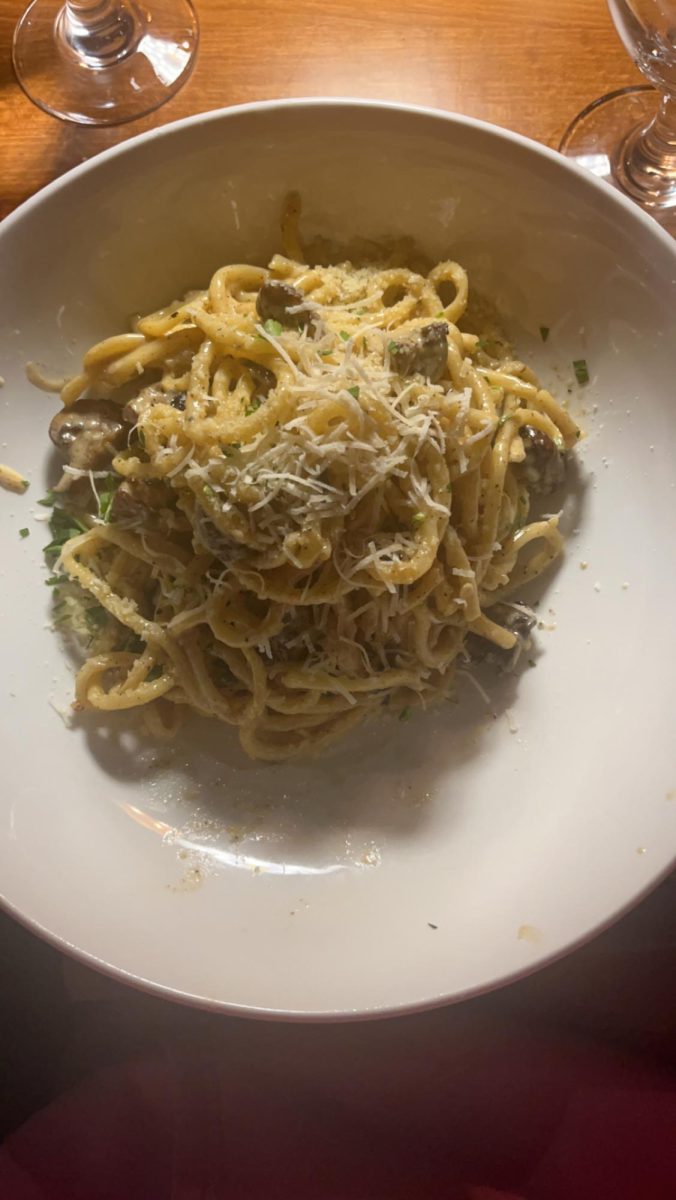






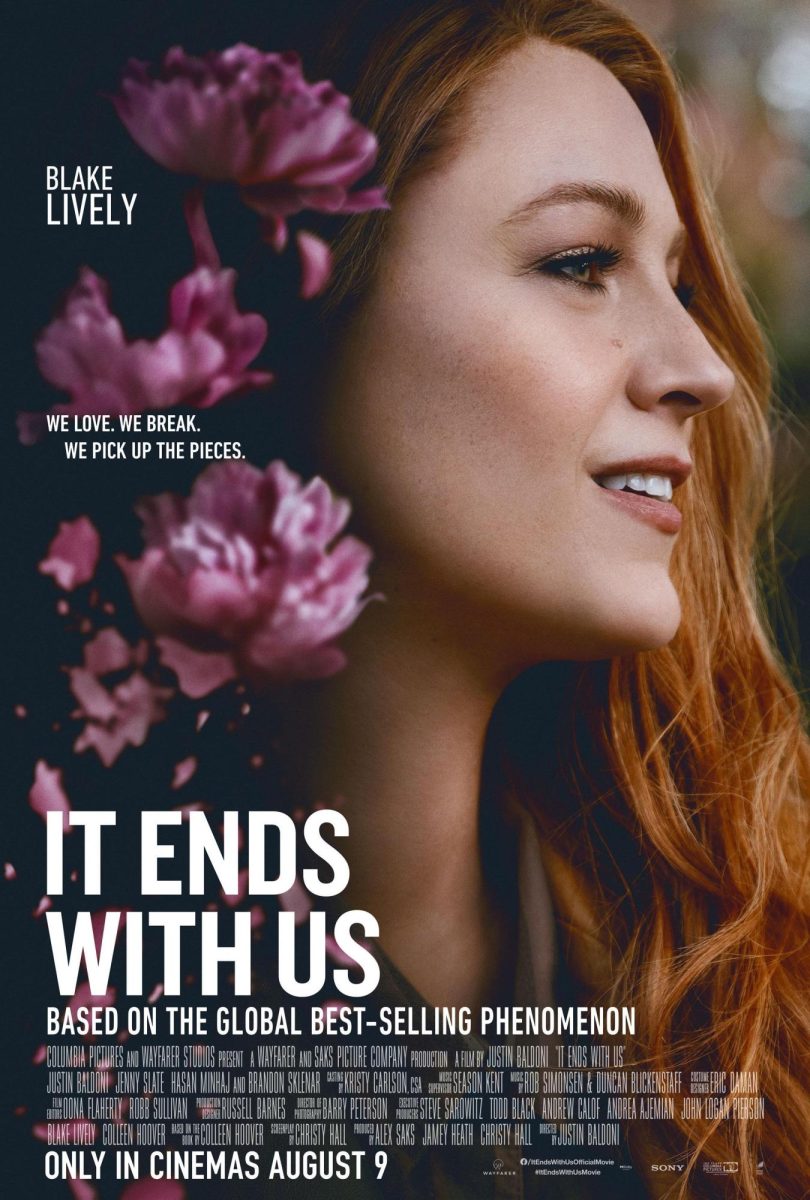




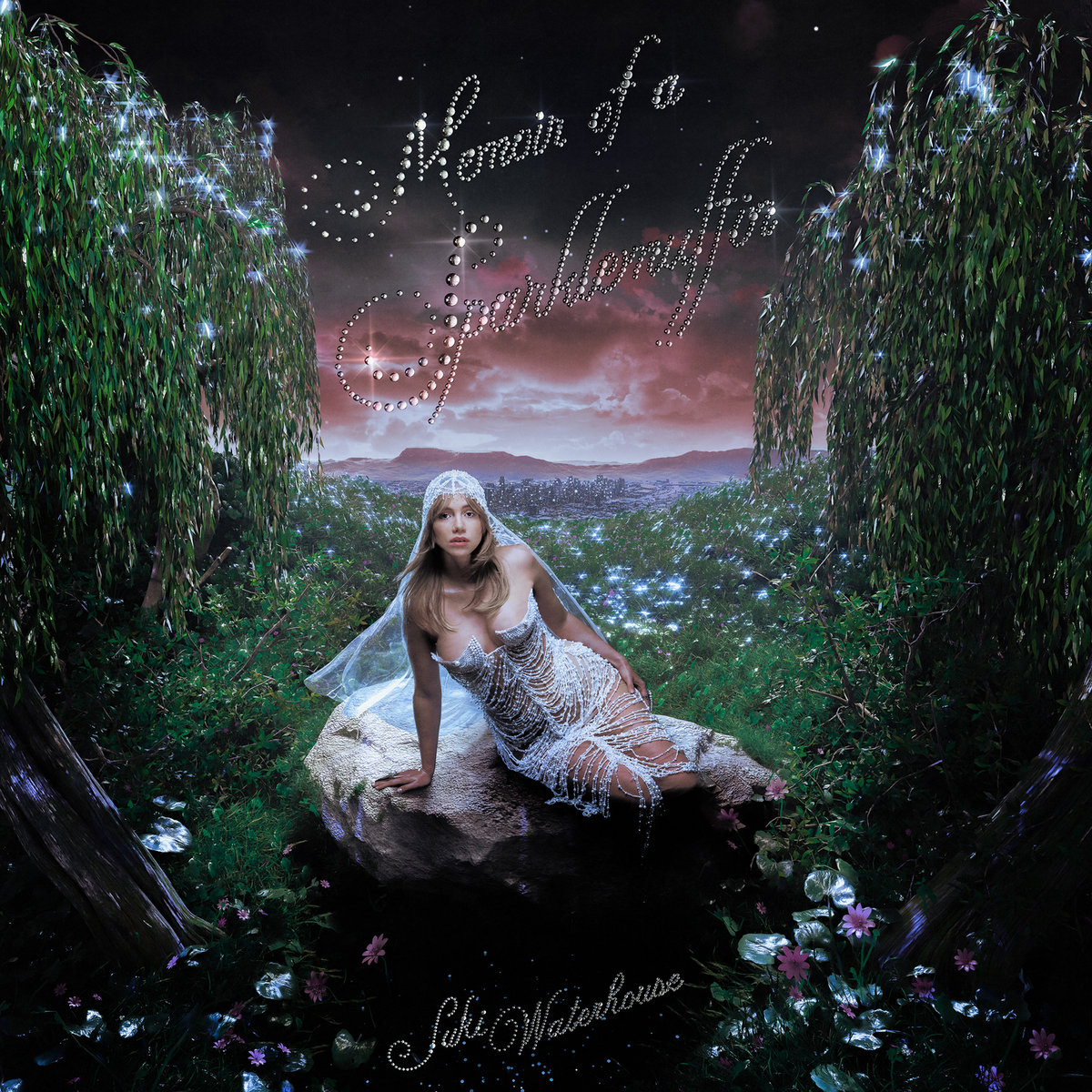
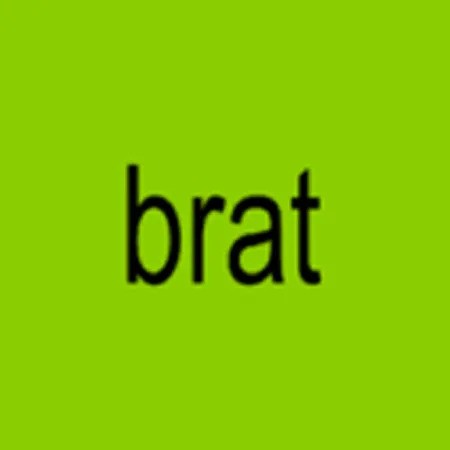








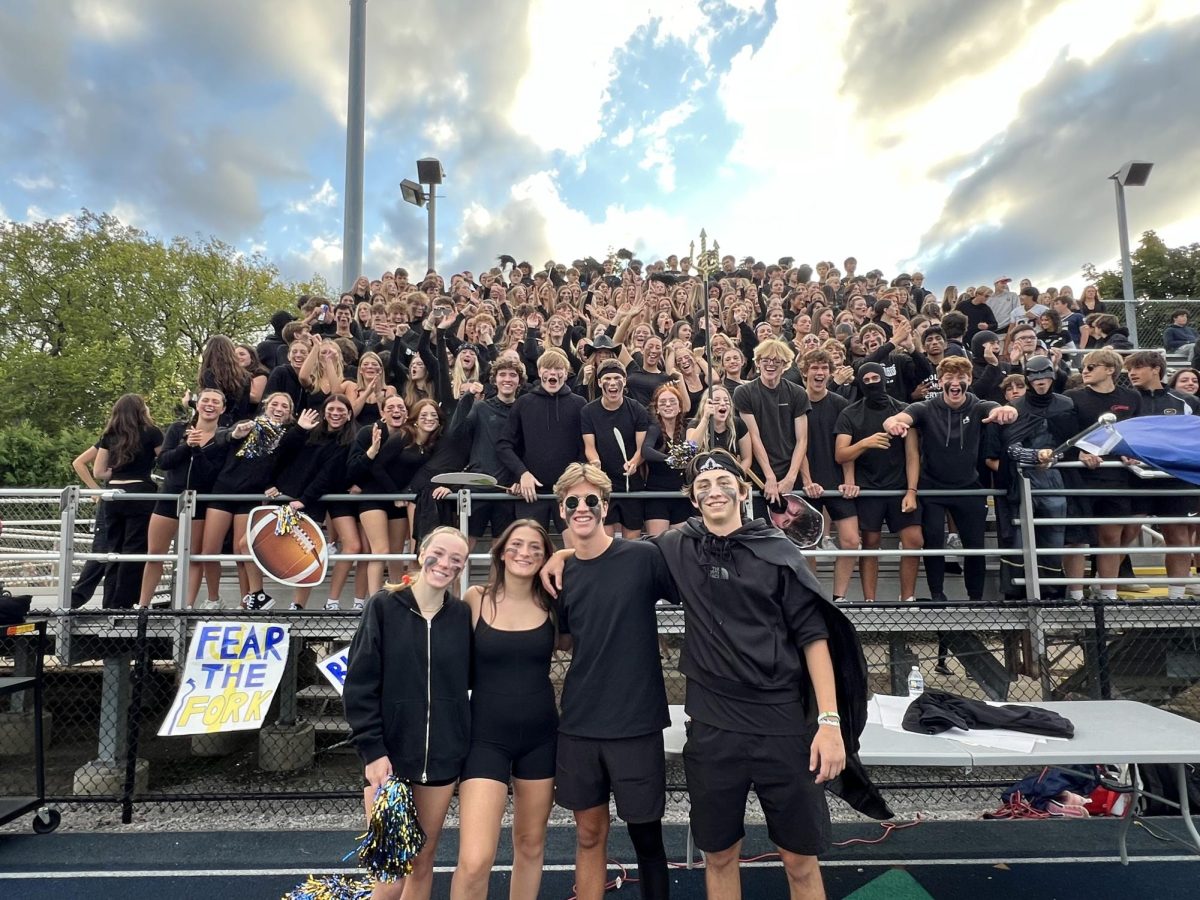
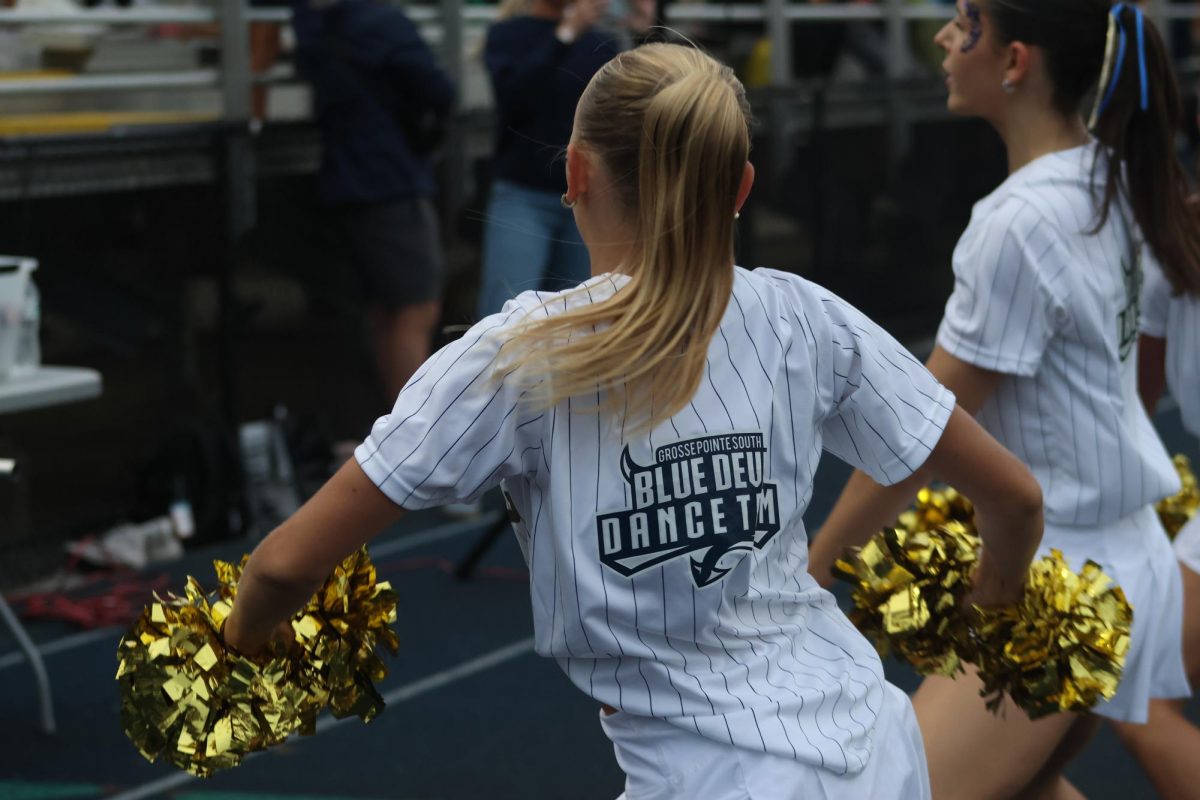
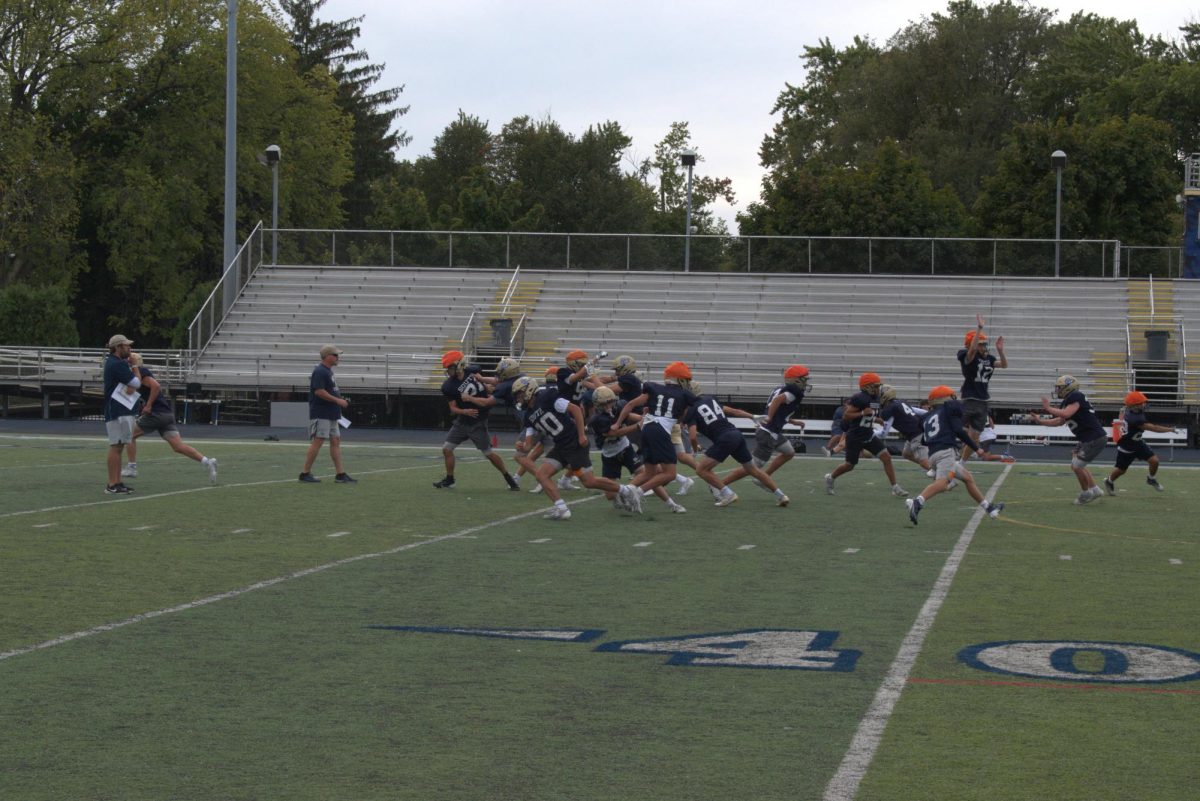
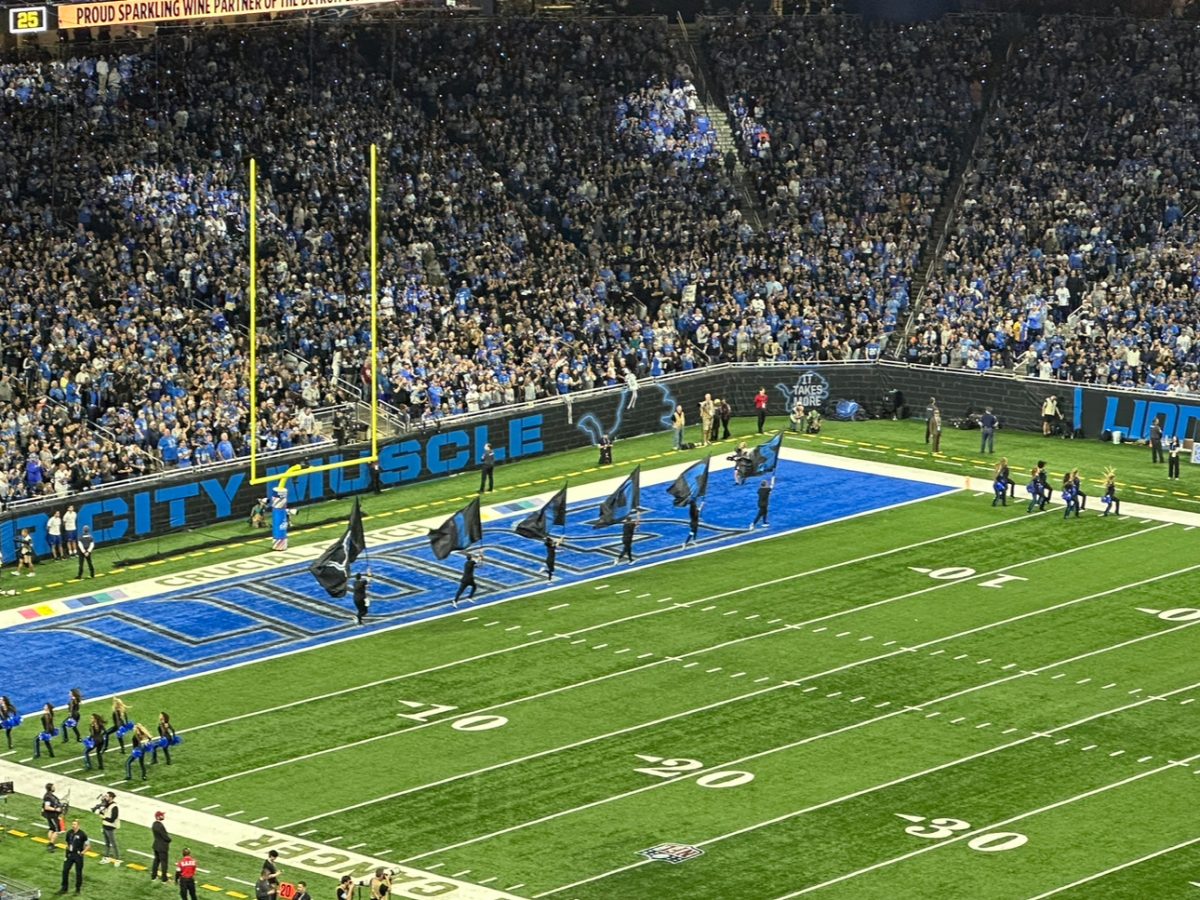


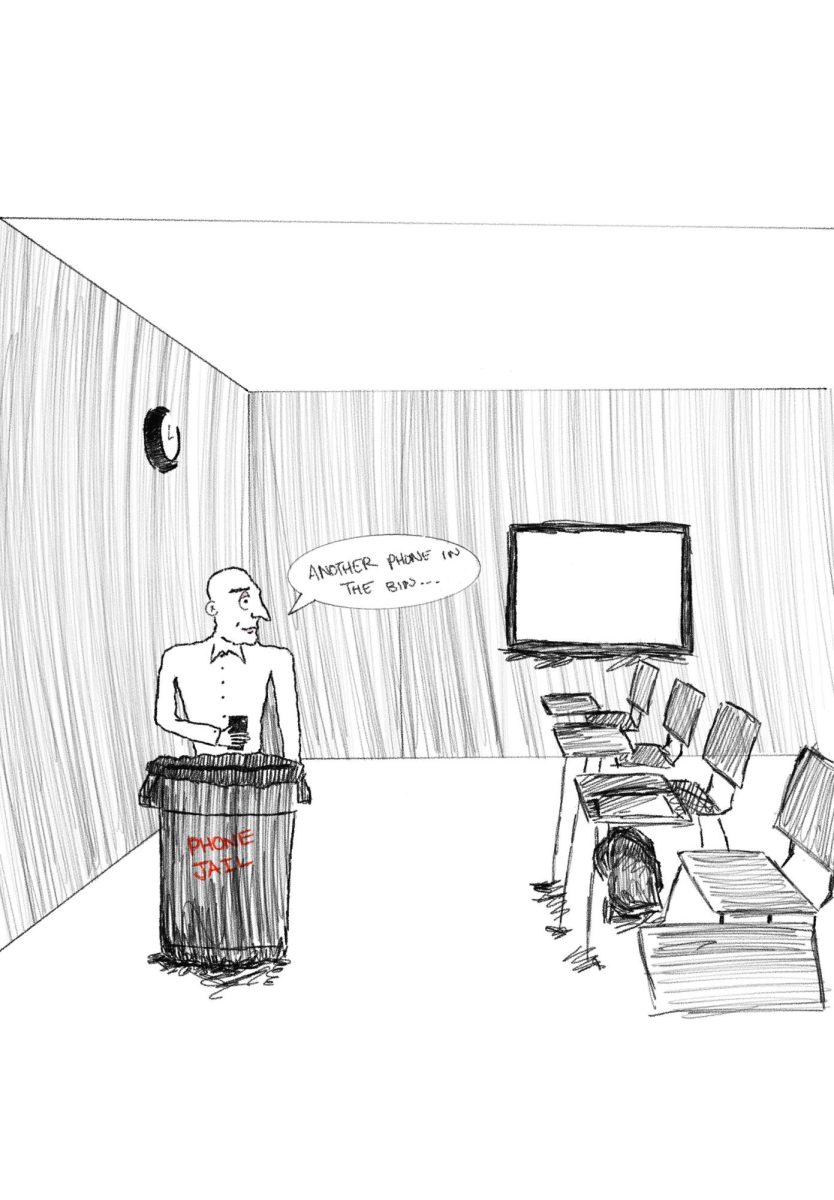








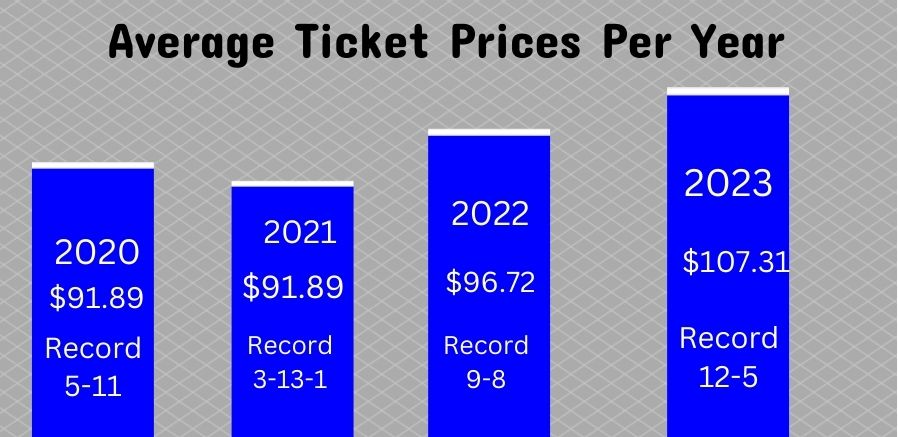
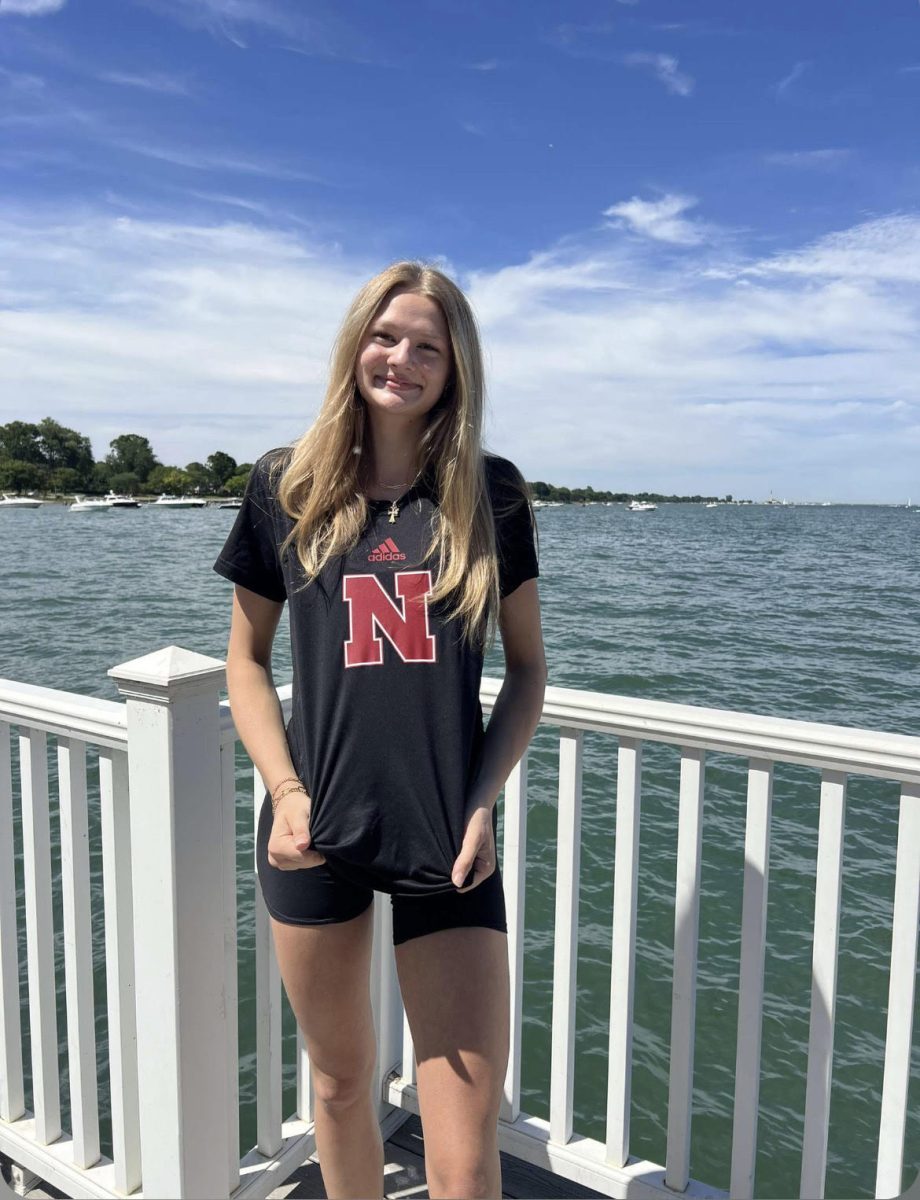
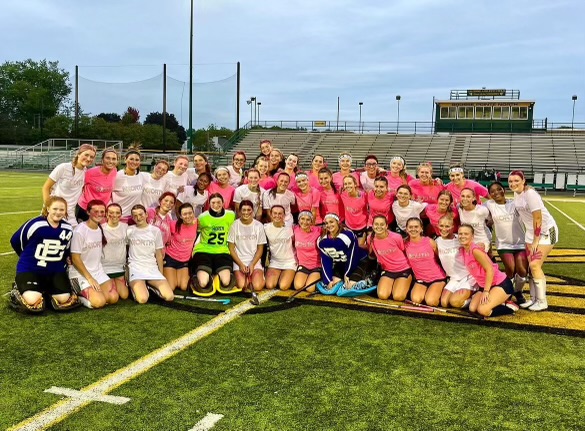
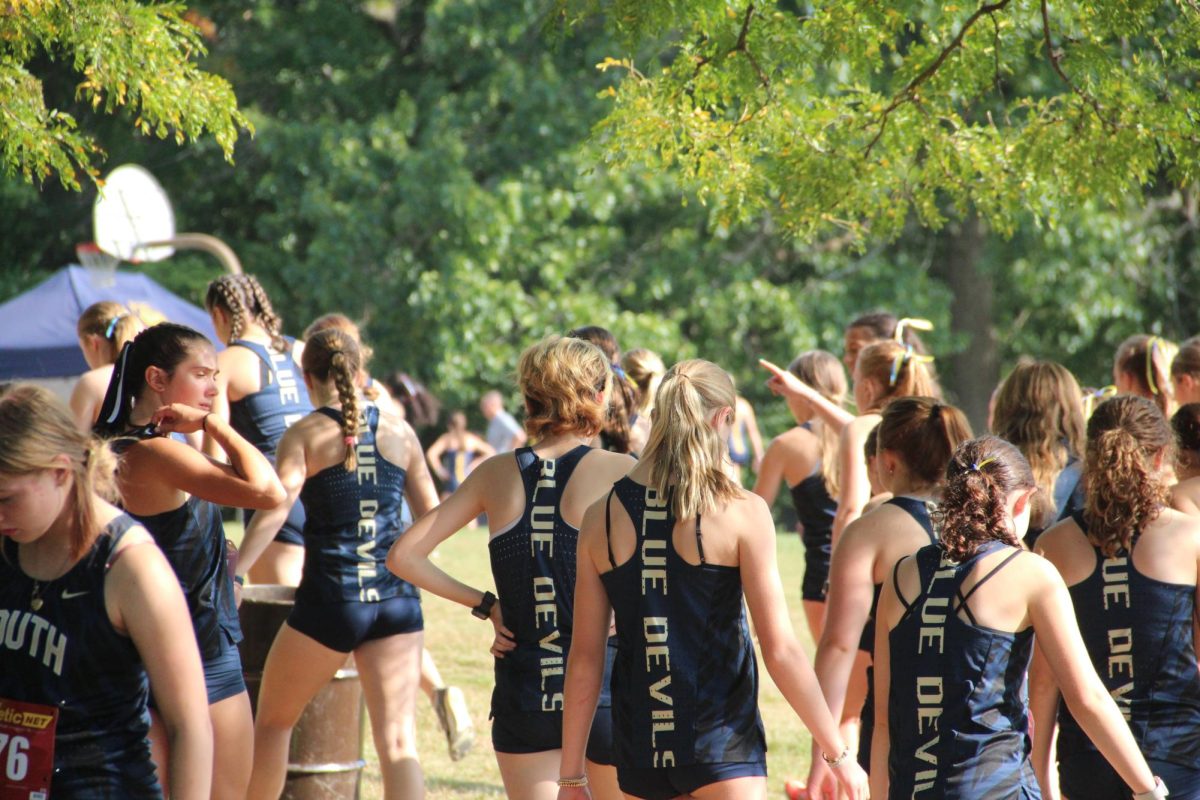

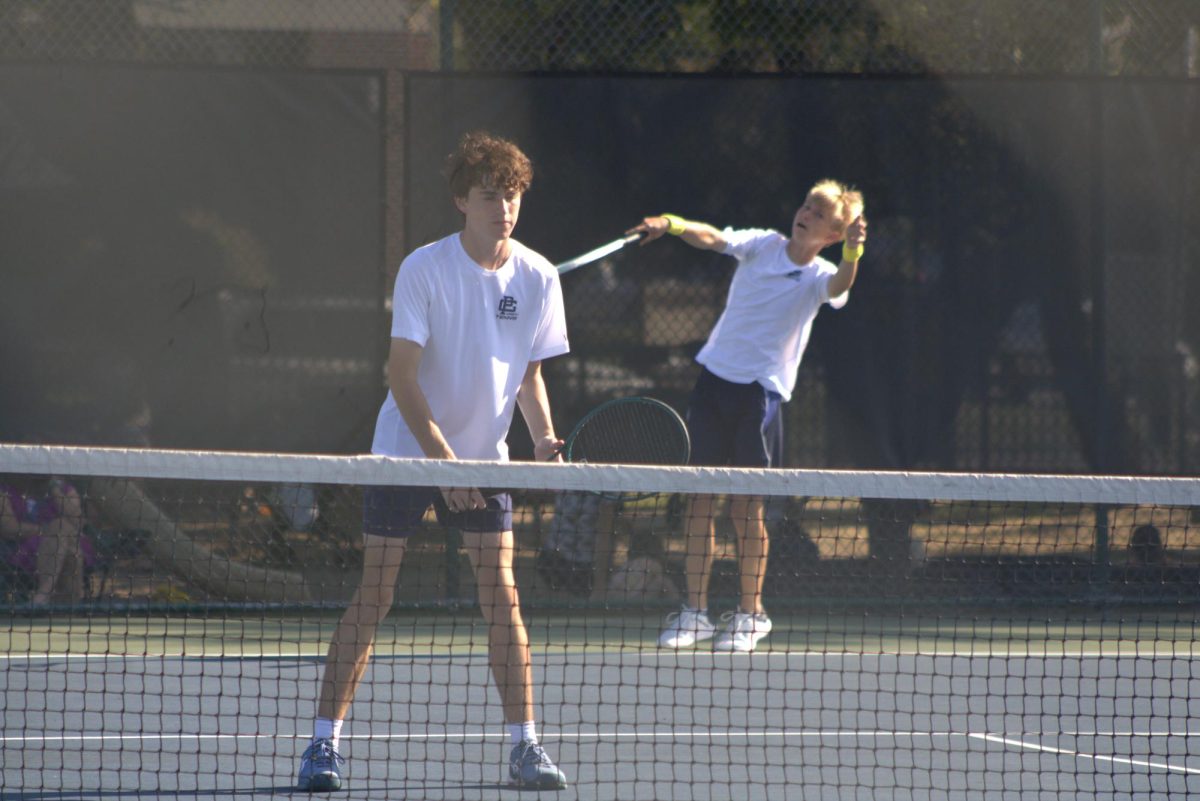

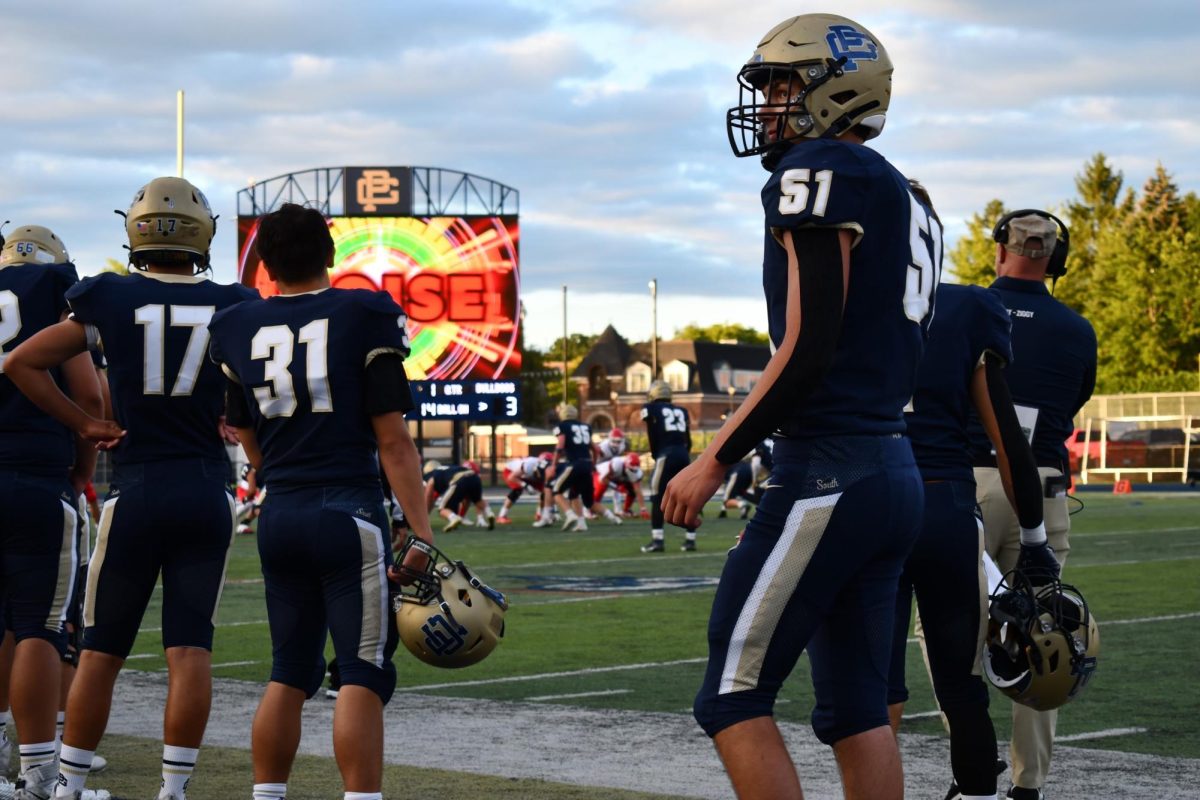








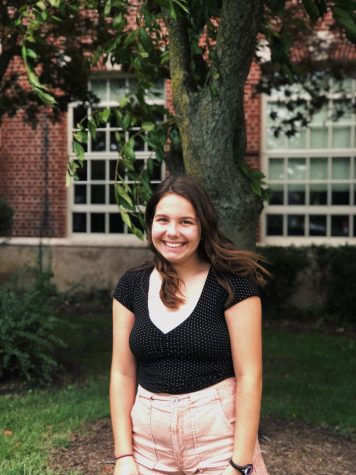
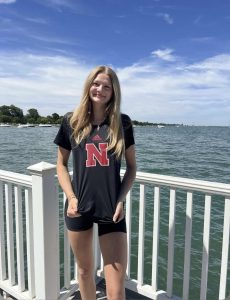
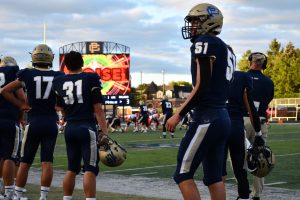
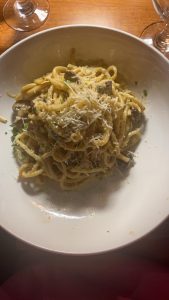


Addison Rausch • Jan 3, 2020 at 7:53 am
Facebook moms at it again, trying to ruin our progress in Grosse Pointe.
Owen Clexton • Dec 22, 2019 at 10:47 am
Your supposed to feel a but uncomfortable, that’s the whole point. If your really processing the information and discussing it you as a white person should feel at lest a little uncomfortable, this said as a white male. The only people who believe diversity leads to division are those who seek to keep their stature above others.
P.J. Palen • Dec 22, 2019 at 10:28 am
SEEDS is on the right side of history and I commend their exhibit about privilege. The nature of education is provocative. Last year when we were commemorating the 50th anniversary of Dr. Martin Luther King Jr.’s speech I listened to the audio. There were clearly hecklers in the crowd and it was incredible to hear how Dr. King boggled their minds and quelled their disruptive comments with just his words and arguments. Truth will always prevail.
Erykah Benson • Dec 22, 2019 at 9:50 am
Another fantastic story by the Tower. Stories like this make me proud to be a graduate of GPS. Keep up the great work South keep pushing on!
Stephen Warnick • Dec 22, 2019 at 7:49 am
Bravo to SEED for encouraging discourse on issues that obviously need to be discussed. When you get community members filing FOIA requests and lawyering up, you know you are bringing up educational issues that are needed. Don’t let a minority of fragile people to deter this important work. There is nothing illegal about fostering discussions. Don’t be intimidated by adult bullies with power. Thank you for your courage and strength. You inspire me. Keep up the good work.
Russell Chavey • Dec 22, 2019 at 12:52 am
It is natural for people of all cultures, faiths and beliefs to have some trepidation, concern or even fear of perceived impending change. Those with the most privilege are often the ones who fear change the most since the existing cultural norms feel quite comfortable to them. A well founded education encourages the learner to question the status quo and test it against a wide ranging set of standards or norms, not just the ones they are already familiar with. So, those with the most privilege in their community will likely be the ones to be most suspicious of and challenging of such an education. This should not dissuade the learner but rather encourage him/her as it provides additional evidence for and support of the need for continuing education around the privilege we all are living with. Those among us struggling to identify and understand their privilege need our help and support. It does not help to respond negatively to their attempts to obstruct the learning process as this tends to reconfirm in their minds the detrimental effects of change.
George sanders • Dec 21, 2019 at 10:10 pm
Imagine being this threatened by diversity